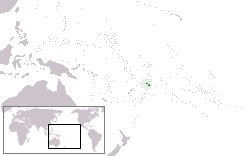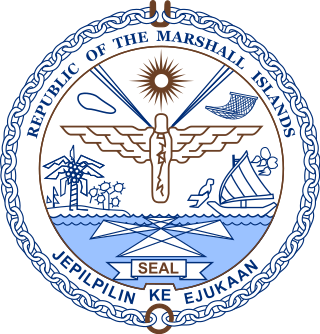Related Research Articles

The Convention on the Elimination of all Forms of Discrimination Against Women (CEDAW) is an international treaty adopted in 1979 by the United Nations General Assembly. Described as an international bill of rights for women, it was instituted on 3 September 1981 and has been ratified by 189 states. Over fifty countries that have ratified the Convention have done so subject to certain declarations, reservations, and objections, including 38 countries who rejected the enforcement article 29, which addresses means of settlement for disputes concerning the interpretation or application of the convention. Australia's declaration noted the limitations on central government power resulting from its federal constitutional system. The United States and Palau have signed, but not ratified the treaty. The Holy See, Iran, Somalia, Sudan, and Tonga are not signatories to CEDAW.
The Optional Protocol to the Convention on the Elimination of All Forms of Discrimination against Women (OP-CEDAW) is an international treaty which establishes complaint and inquiry mechanisms for the Convention on the Elimination of All Forms of Discrimination Against Women (CEDAW). Parties to the Protocol allow the Committee on the Elimination of Discrimination against Women to hear complaints from individuals or inquire into "grave or systematic violations" of the convention. The Protocol has led to a number of decisions against member states on issues such as domestic violence, parental leave and forced sterilization, as well as an investigation into the systematic killing of women in the Mexican city of Ciudad Juárez, Chihuahua.
The Declaration on the Elimination of Violence Against Women was adopted without a vote by the United Nations General Assembly in the 48/104 resolution of 20 December 1993. Contained within it is the recognition of "the urgent need for the universal application to women of the rights and principles with regard to equality, security, liberty, integrity and dignity of all human beings". It recalls and embodies the same rights and principles as those enshrined in such instruments as the Universal Declaration of Human Rights, and Articles 1 and 2 provide the most widely used definition of violence against women.

Lesbian, gay, bisexual and transgender (LGBT) people in Samoa face legal challenges not faced by non-LGBT people. Same-sex sexual acts are illegal, punishable by up to seven years imprisonment, but the law is not enforced.
Tonga is a constitutional monarchy with a population of approximately 130,000. Politics and the economy are dominated by the king, the nobility, and a few prominent commoners. Economic, social and cultural rights are generally well respected. There are, however, a number of issues concerning protection of civil and political rights, particularly freedom of expression, and rights to political participation. Violence against women is a serious issue.
Solomon Islands is a sovereign country in Melanesia consisting of many islands with a population of 561,231 (2013). It became self-governing from the United Kingdom in 1976 after three previous attempts at forming a Constitution. The Constitution of Solomon Islands was enacted in 1978. This however led to conflicts between cultures and armed conflict in the late 1990s forced a review of the 1978 Constitution. This review resulted in the Federal Constitution of the Solomon Islands Bill 2004 (SI) and various other amendments. The Human Rights Chapter, however, remained unchanged.
The Universal Periodic Review (UPR) is a state monitoring mechanism of the United Nations Human Rights Council (HRC). It was established by General Assembly resolution 60/251 in 2006 to periodically review the protection and promotion of human rights in each of the 193 United Nations (UN) Member States. New Zealand has been reviewed twice via the UPR in 2009 and 2014.
Samoa, officially the Independent State of Samoa, has a population of approximately 188,000 people. Samoa gained independence from New Zealand in 1962 and has a Westminster model of Parliamentary democracy which incorporates aspects of traditional practices. In 2016, Samoa ratified the Convention on the Rights of Persons with Disabilities CRPD and the three optional protocols to the CRC
Papua New Guinea (PNG) is a constitutional parliamentary democracy with an estimated population of 6,187,591. Police brutality, provincial power struggles, violence against women, and government corruption all contribute to the low awareness of basic human rights in the country.
The Cook Islands are 15 small islands scattered over 2 million km squared of the South Pacific. According to the latest census, the nation has a total population of approximately 18,000 people. Spread in population between the mainland capital, Rarotonga, and the Outer Islands mean inequality in terms of delivery of public services. Internal migration between Rarotonga and the Outer Islands is relatively high due to lack of schooling and employment opportunities, and increased living standards and availability of medical and educational services in Rarotonga.
The Republic of Vanuatu is a parliamentary democracy with a population of approximately 326.000. The Constitution of Vanuatu is supreme law and sets out the legal framework which deals with the respect of human rights.
Tuvalu is a small island nation in the South Pacific, located North of Fiji and North West of Samoa. The population at the 2012 census was 10,837. Tuvalu has a written constitution which includes a statement of rights influenced by the United Nations Universal Declaration of Human Rights and the European Convention on Human Rights. While most human rights in Tuvalu are respected, areas of concern include women’s rights and freedom of belief, as well as diminishing access to human rights in the face of global warming. The latter has played a major role in the implementation of human rights actions in Tuvalu given its geographical vulnerability and scarce resources.
The Republic of Uruguay is located in South America, between Argentina, Brazil and the South Atlantic Ocean, with a population of 3,332,972. Uruguay gained independence and sovereignty from Spain in 1828 and has full control over its internal and external affairs. From 1973 to 1985 Uruguay was governed by a civil-military dictatorship which committed numerous human rights abuses.
Violence against women in Fiji is recognised to be "pervasive, widespread and a serious national issue" in the Pacific Island region. Fiji's rates of violence against women are "among the very highest in the world". The Fiji Women's Crisis Centre reports that 64% of women who have been in intimate relationships have experienced physical or sexual violence from their partner, including 61% who were physically attacked and 34% who were sexually abused.
Violence against women in New Zealand is described as the kinds of violence disproportionately affecting women compared to men, due to factors of ongoing gender inequality in society. The New Zealand government and justice system view efforts to prevent and deal with violence against women as a priority of New Zealand legislation and the criminal justice system.

The Marshall Islands is a country in the Pacific spread over 29 coral atolls, with 1,156 islands and islets. It has an estimated population of 68,480 and is one of the sixteen member states of the Pacific Islands Forum. Since 1979, the Marshall Islands has been self-governing.
Domestic violence in New Zealand, often called family violence or family harm is defined under New Zealand law as not only intimate partner violence but also violence against other family members, including children and extended family or whānau, as well as people living together in the same household, such as flatmates. It is estimated that one third of people in New Zealand have experienced intimate partner violence (IPV) within their lifetime, making New Zealand have the highest rate of domestic violence in 14 OECD countries. In 2020, New Zealand police responded to a domestic violence call every 4 minutes.
Forced marriage is the marriage of one person to another person without the consent of one or both of the parties. It is to be distinguished from an arranged marriage, where the parties do not select their partners but there is free choice to accept or decline the marriage. Forced marriage is widely recognised as a human rights abuse, with some commentators considering it a form of slavery.
Marital rape generally refers to non-consensual sexual intercourse between married spouses. In Singapore, there used to be a partial immunity for marital rape first introduced during British colonial rule because it was deemed not a criminal offence except when the wife is below 13 years of age or when any of the specific circumstances provided under section 375(4) of the Singapore Penal Code are satisfied. Since 1 January 2020, the law was repealed and its immunity lifted under the Criminal Law Reform Act 2019, criminalising marital rape.
Examples of Gender inequality Papua New Guinea includes poverty, violence, limited access to education and health care, and witch hunts. Cases of violence against women in PNG are under reported. There is also a lack of services for women who experience violence. There are reports of sexual abuse by police officers, on arrest and whilst in police custody. These incidents lack documentation or investigation, consequently, perpetrators are rarely prosecuted or punished. The government of Papua New Guinea (PNG) has introduced legislation to combat these issues, though with limited success.
References
- 1 2 "A/HRC/WG.6/8/KIR/2 - E - A/HRC/WG.6/8/KIR/2". undocs.org. Retrieved 2019-07-10.
- 1 2 "A/HRC/WG.6/8/KIR/3 - E - A/HRC/WG.6/8/KIR/3". undocs.org. Retrieved 2019-07-10.
- ↑ "Constitution of Kiribati | Parliament of Kiribati". Archived from the original on 2015-09-21. Retrieved 2016-01-19.
- 1 2 3 4 5 "A/HRC/WG.6/8/KIR/1 - E - A/HRC/WG.6/8/KIR/1". undocs.org. Retrieved 2019-07-10.
- ↑ Laws of Kiribati Act 1989
- 1 2 "National Water Resources Policy" (PDF). Retrieved 2021-01-18.
- 1 2 "National Sanitation Policy" (PDF). Retrieved 2021-01-18.
- 1 2 3 4 5 6 "Press Statement: United Nations Special Rapporteur on the human right to safe drinking water and sanitation Ms. Catarina de Albuquerque Mission to the Republic of Kiribati - Kiribati". ReliefWeb. Retrieved 2019-07-10.
- 1 2 3 4 "Kiribati: Submission to the UN Universal Periodic Review: Eighth session of the UPR Working Group of the Human Rights Council, May 2010". www.amnesty.org. ASA 46/001/2009. Retrieved 16 March 2017.
- 1 2 3 "KIRIBATI" (PDF). Retrieved 2021-01-18.
- 1 2 United States Department of State